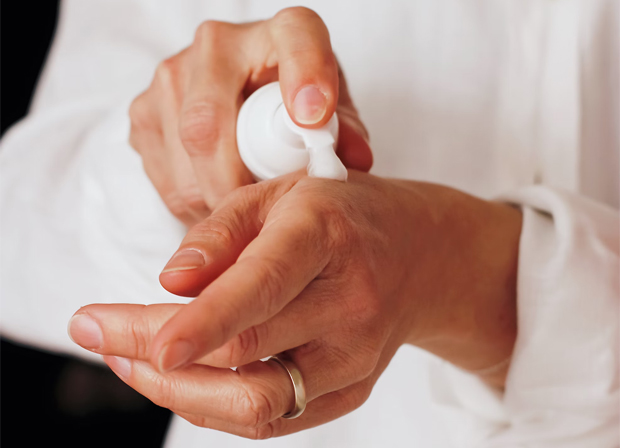How to Reduce the Risk of Eczema Flare-Ups this Winter

How to Reduce the Risk of Eczema Flare-Ups this Winter
Eczema is a common skin condition that causes itchy, red, inflamed and very dry skin. It’s usually first diagnosed in childhood, but adults can develop eczema too. Eczema tends to get worse in winter due to a few reasons. The cold and dry conditions deplete the skin from its natural moisture and makes it dry. People also tend to prefer hot showers and hot baths in the wintertime to warm up, but this dries the skin out even more as it can damage the outer layer of skin which holds in the skin’s moisture. If you have eczema, it’s important that you are aware of this and what you can do to reduce the risk of eczema flare-ups.

- Create a wash routine that works for your skin.
Avoid those hot baths and showers and don’t overdo it with the frequency or time spent in the water either. Add a moisturising product such as Epaderm Ointment to your bath water. This ointment is a rich emollient that has been formulated with clinically proved ingredients to deeply moisturise skin. It’s fragrance free and free from colourings and preservatives to make it suitable for a wide range of dry skin conditions and the most delicate and sensitive skin. Epaderm Ointment can be used as a bath additive by melting it in a container of hot water, shaking to mix, and then adding to the bath. You can also use it as a skin cleanser. After your shower or bath, gently pat your skin dry.

- Moisturise your skin well.
If you have eczema prone skin, it’s essential to keep moisturizing often with a honey-based eczema cream. Honey as a treatment for skin conditions is highly recommended due to its anti-inflammatory, antioxidant, and antimicrobial properties. Patients also find that using thicker creams and lotions and applying them straight away after showering or bathing and topping up as needed throughout the day has skin healing and soothing benefits. Epaderm Cream is a great option! It’s an emollient formulated with clinically proven ingredients to hydrate the skin and make is softer too. Great for lots of dry skin conditions, including eczema. It’s very effective and works especially well when applied straight after you get out of the water.
- Don’t overheat.
Certain fibres and getting too hot can also lead to flare-up so be careful with layering up too much in the cold and ensure your clothes and bedding are made from breathable fabrics.

- Hydrate from the inside.
Healthy skin starts from within and your diet and water drinking habits will affect the condition of your skin. Eat plenty of hydrating foods such as fresh fruit and raw vegetables and drink plenty of water. At least eight glasses of water as a minimum. You’ll most likely be pleased to hear that that can include hot beverages too. Also try adding a vitamin D supplement to your routine as this can reduce eczema flare-ups.
- Use a humidifier at home.
Your air at home is likely to be quite dry during the winter due to your central heating. This is likely to irritate your skin if you have eczema. Try using a humidifier at home to combat this and add moisture back into the air. Remember to maintain your humidifier according to its instructions.
The above tips should help you create a daily routine to help you reduce the risk of eczema flare-ups this winter. If at any time you find that your skin is getting worse, make an appointment with your GP.
Collaboration. Contains a sponsored link.




